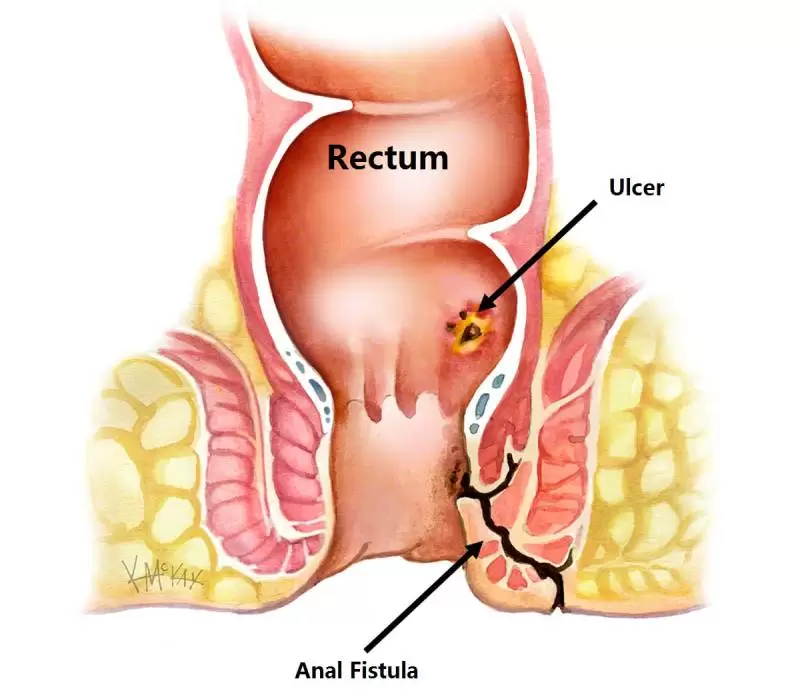Also known as Bhagander. It is an infected tunnel between the skin and the anus. Medicines cannot cure it; Surgery (Laser or VAAFT) is the only permanent solution.

Complex Fistula Experts
95% Success Rate
An anal fistula is a small tunnel that develops between the end of the bowel and the skin near the anus. It is usually the result of an infection near the anus causing a collection of pus (abscess) in the nearby tissue. When the pus drains away, it leaves a small channel behind.
⚠️ Unlike piles, fistulas DO NOT heal on their own. Leaving them untreated can lead to complex branching tracks.
The preferred choice for sphincter preservation. A laser fiber seals the track from inside without cutting muscles.
Fistulotomy: Laying open simple tracks (98% Cure).
VAAFT: Video-assisted cleaning for complex, high tracks.
From Abscess to Cure
"Treating a fistula is like defusing a bomb. You have to remove the track without damaging the continence mechanism."
Dr. Jaya Maheshwari explains why recurrent boils should never be ignored and how modern technology has made fistula surgery safe for your muscles.